Cycling Isn’t an Identity. It’s Just Getting Somewhere.
Collaboration with Challenger Cities | Culture, Transport & Identity
You pretty much can’t go a day in North America without there being some sort of car vs. bike war story somewhere in the media, and it’s getting louder all the time. Someone screams or types in all caps “BUT WE’RE NOT AMSTERDAM!” on average every four and half minutes1.
Because in North America, we’ve turned cycling into a cause. It’s a lifestyle, a subculture, a righteous fight. In much of Europe, it’s called ‘getting to work’.
The difference isn’t infrastructure, or cars, or weather, or even hills. It’s a mindset that drives a culture. While a Dutch, Danish or a bloke with a tweed jacket in Cambridge thinks, “I need to get somewhere, I’ll take the bike”, the North American on two wheels will proudly declare, “I am a cyclist”.
Which is a bit of a problem, for once you’re a cyclist, you’ve joined a tribe. You adopt the swagger, and pull on the uniform of the spandex jersey. Even if you don’t like dressing in skin tight clothing, being on a bike in places like Toronto or Chicago confronts you with the same enemies. You’re no longer a person who happens to get around on a bike. You’re a ‘cyclist’. And cyclists, in the minds of anyone not on two wheels, are some of the most annoying and self-righteous obstacles on the road. There’s an argument that there ARE ‘cyclists’ in the Netherlands, but you’ll only identify them on country roads, in ad-adorned Lycra, wearing helmets … the only Dutch people on bicycles who wear helmets are racers, they’re the ‘cyclists’.
The culture of more people riding bikes is taking place in the context of this fight, regardless of what side you’re on. Which is daft, because it’s like asking you to pick between two sides that aren’t necessarily even playing the same sport. It would be hilarious if it wasn’t so damn tragic, because for the most part, people who drive cars will sometimes ride bikes, and people who ride bikes will be found behind the wheel of a car. On the day I write this, I’ve done both. You might have too.
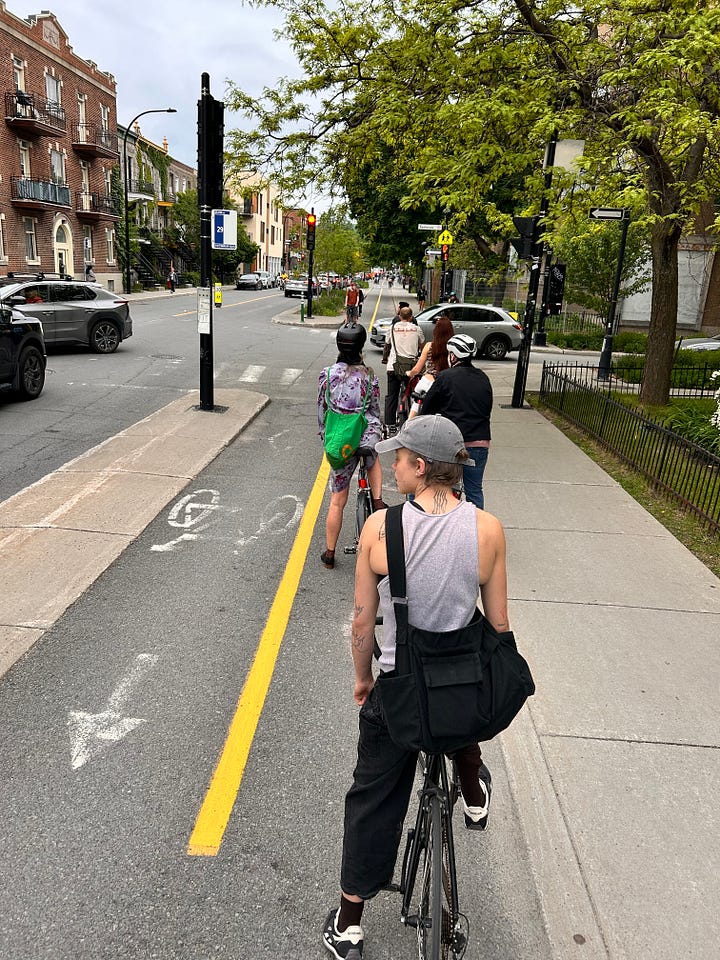
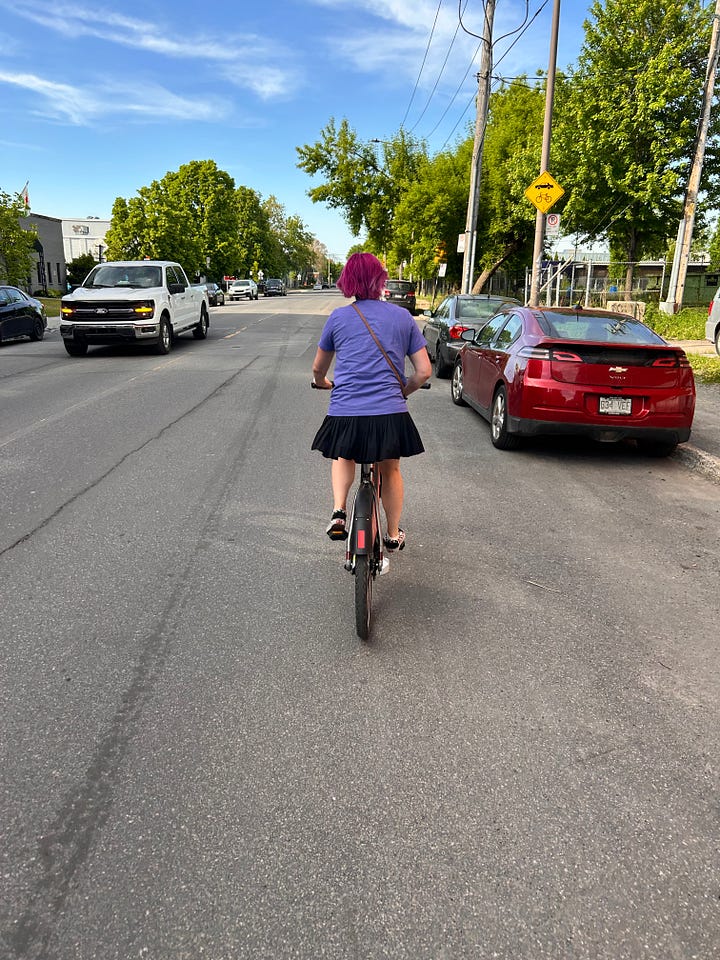
Perhaps the great thing about much European cycling culture is that, well, there isn’t one. As in people ride bikes without becoming ‘cyclists’. It’s not a statement, identity or a lifestyle, any more than being labelled a ‘shopper’ by popping out for bread and milk. Much like a pair of shoes doesn’t label you a ‘walker’ It’s just a bit of transport. And even a man who made his career fronting the world’s biggest cars shows is talking about that these days.
Having recently moved from Toronto, where the entire narrative is the provincial government looking to remove municipal bike lanes, to Montreal, where few will bat an eyelid at someone riding as the snow falls, I've noticed how it doesn’t really have to be this combative culture on this side of the ocean.
Montreal has all the same excuses Toronto can use for why bike lanes shouldn’t exist: it’s cold(er) in the winter, also sprawls with suburbs, and has a few extra hills for good measure. Even the bike share is a bit more expensive. And yet, people are biking, and drivers are reasonably accepting of them, even when they treat the rules of the road somewhat liberally. One could argue that the French take the rules of the road a bit more liberally than the English and North Americans, so maybe that helps things along a bit.
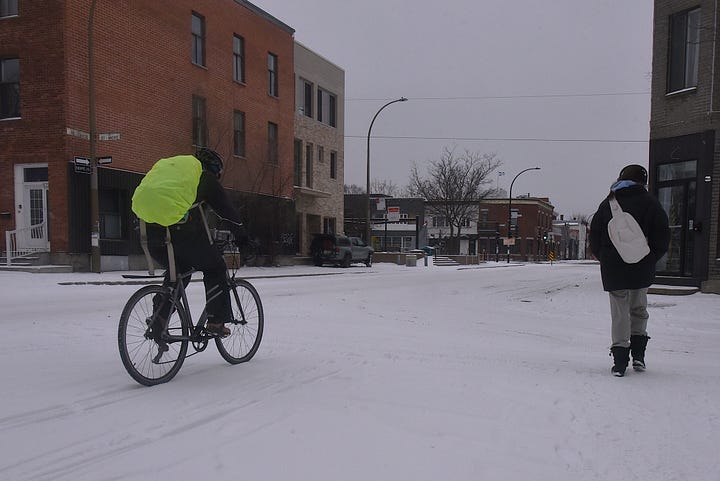
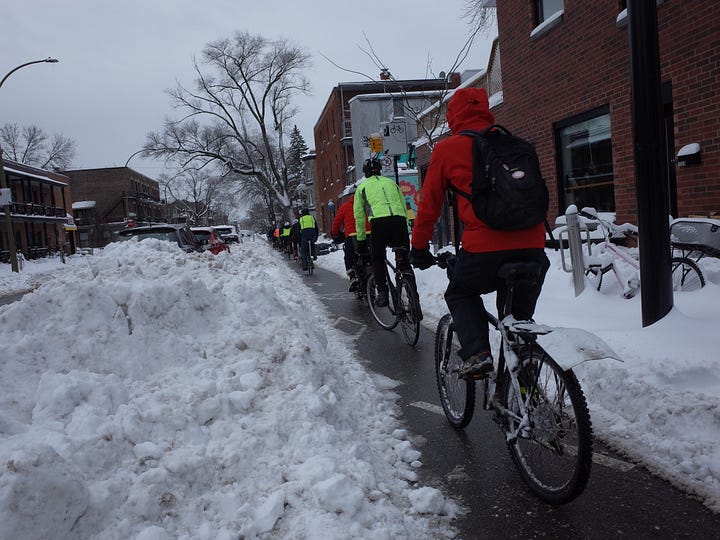
When everyone seems to exist in the same place with that mild sense of indifference, you know you’re in a somewhat functional city. I’d argue it’s also why Montreal is just that much cooler than Toronto when you’re driving your car to the garage for an oil change and get overtaken by a heavily tattooed lady riding a unicycle in Doc Martens. You do you girl!
To James May’s point; cars are brilliant … but so are bikes. And bikes work so much better in the city than cars. On a bike, I don’t really need to worry about the third pint in the pub. With a bike share, I don’t worry if I don’t fancy the bike: I can change my mind and use the bus or the metro instead … or Uber if I’m feeling particularly slovenly. (I assume I’m allowed to admit that here.)
As long as cycling feels like an identity, rather than an activity, we’ll never get the shift to bikes that we’d like. Most people don’t want to be seen as ‘cyclists’, I don’t. I’m a relatively normal person doing what people do in cities, meeting my mate for lunch using two wheels instead of taking two metro trains.
So if we want a city to boost cycling, yes, build the bloody bike lanes. But let’s kill the identity at the same time shall we? The media and the old bloke in the F-150 can call us ‘cyclists’, albeit perhaps precedent with a seven letter word beginning with ‘f’, but can we not? And while we’re at it, that guy who rolled down his window to shout as he sped by ain’t a driver either, he’s just driving.
Because the moment you make something part of someone’s self-concept, you’ve given them a reason to reject it by saying “I’m not one of those”.
Ironically, the biggest threat to cycling in North America isn’t a lack of infrastructure (though of course we’d like more). It’s an excess of meaning. Make it less meaningful, and more people might actually do it.
This piece was written by from . Photos by Iain and .
Interested in writing an article for our Substack? Reach out to media@urbancyclinginstitute.org
Enjoying our diverse articles? Support our work by becoming a paid Member.
Read next:
this is (probably) not true






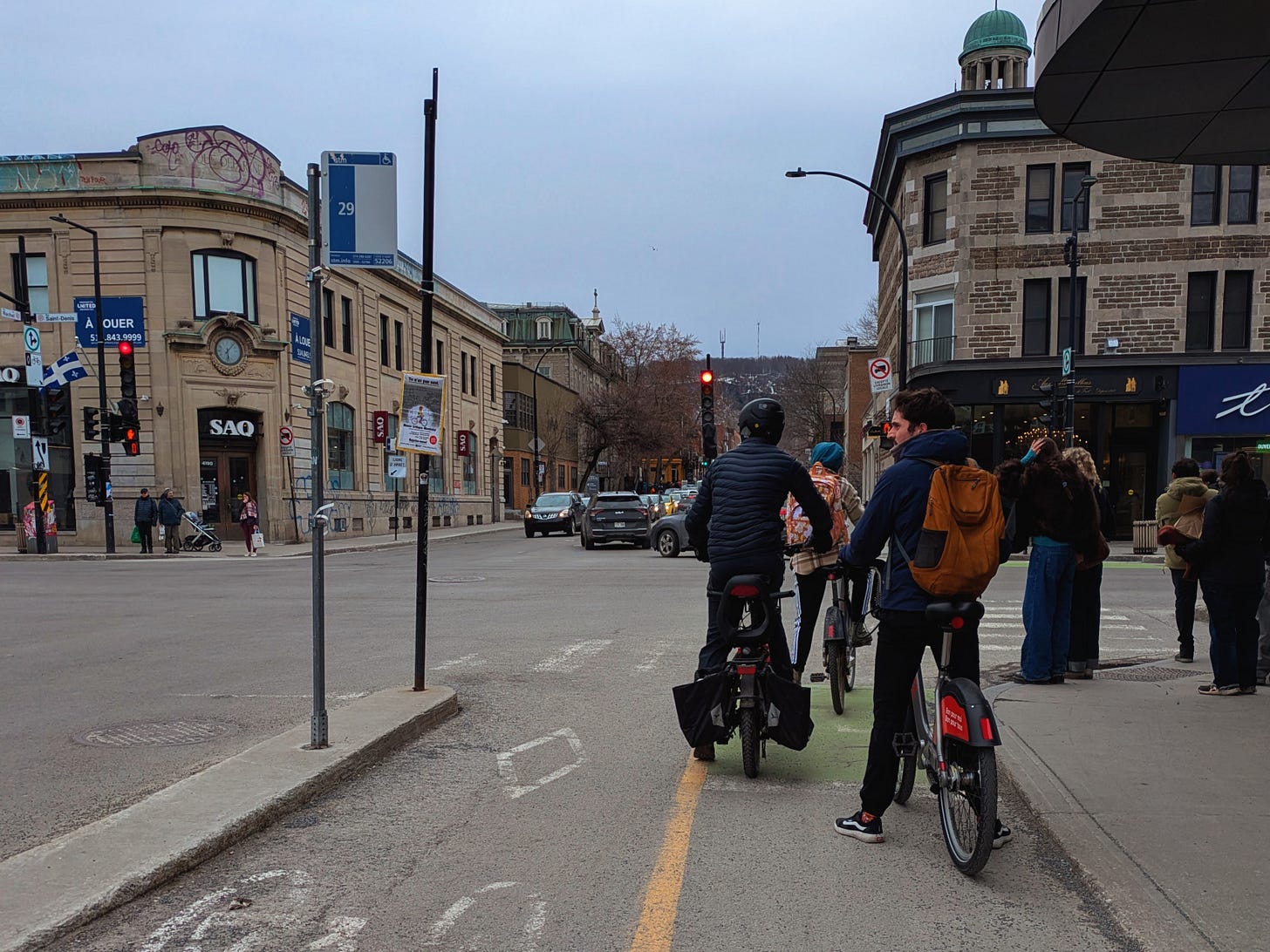




Cyclist (ssyyhhkllisssst) sounds like a word from parseltongue, sometimes it feels like some kind of misunderstood dark art. Sometimes it feels like some kind of initiation ceremony where you have to run with enraged bulls and rhinos. It should not be this way, but for some of us it is. If I survive the apocalypse I expect to still be riding a bike on the other side. But I still don't consider myself a cyclist.
The "person first" framing can be helpful to humanise and remind that poor behaviour is an individual not a group characteristic. Person riding a bike, person using a wheelchair, person driving a motor vehicle permitted by road authorities operate at lethal speeds in urban areas.
"car vs bike" is a convenient distraction for the road authority that is failing both groups.
While I agree with the overall views expressed here, does the word 'cyclist' indeed imply a lifestyle choice, a state of being one, rather than simply mean 'a person travelling on a bicycle'?
In referring to all matters street design and urban mobility, I can't help from needing a word for the latter, and it feels rather unnatural trying to come up with a more appropriately flavoured synonym.